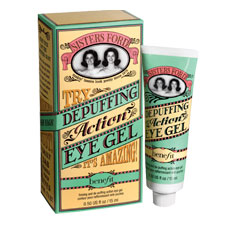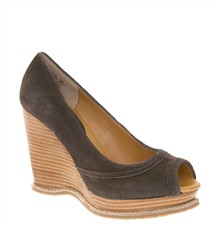When I had gone fully into elastic waistbands and full, hempen floppy look during my ministry in Maryland, I believed that comfort came first. I am a strong feminist, and I knew I could look appropriate and professional in comfortable clothes.
I had a few really sharp items for appearances at the state house or into Washington, DC for political activism, or for guest lecturing or conferences. I didn't feel that it was necessary to compete in any sartorial way with really put-together professional women. I was, after all, a minister. A spiritual leader. Why should I make an effort to project any image in particular?
I believe that it is a point of feminist pride for most women to say, "I value comfort over fashion." I am definitely not knocking Zorra for saying this in a recent comment, but grateful to her for reminding me how often I hear this among the clergy, and how strongly I protest its underlying sense of superiority and difference from other public leaders.
Let me say something about feminism and comfort. I believe that women in powerful positions should look powerful, or at least in control of their image and mindful of it. I believe that women in ministry have huge issues with power -- ambivalence about its appropriateness, in the first place -- and reflect that in their comfy Mother Earth outfits.
I don't believe that we do justice to our calling by looking intentionally unconcerned with the dictates of fashion.
Place a female executive and a female cleric side by side (or a male executive and a male cleric, for that matter), and see who looks ready to lead, to make decisions, to command respect, and to take responsibility. It won't be the guy in the tie with the children's hands motif. It won't be the woman in the batik muu-muu with the enormous pendant, the floppy cotton pants, and the sandals, with the big scrubbed face and the flat, unstyled hair.
Ministers today tend to visually project comfort, giving church-goers and religious seekers the idea that religious life is unthreatening and that it will require nothing of them beyond a juice-and-cookies kind of warmth and fellowship.
I don't think this does justice to our calling or to the urgent relevance we assign to an engaged religious life.
I made a conscious decision when I moved to Massachusetts to tighten up, to buy some belts and zip-button trousers, to find a tailor, to wear heels, to hold myself accountable to fit into clothes of a determinate size rather than fill my closet with fat-accomodating "comfortable" items. I still have plenty of comfortable things, and I don't spend a lot of time dressing up for every day, but I'm so glad I caught myself before I became another projector of the Church-Is-Like-Going-To-Grandma-And-Grandpa's image.
I think this issue is dead serious, so I'll refrain from my usual PeaceBang snarkiness. My readers can flood the comments section with testimonials about the beauty of their batik muu-muu or the theological justification for their Birkenstocks, and that's fine. I hear you. I know you, and I love you. But I am trying to change the tide here, and that's not going to happen by our individual defense of what is currently a woefully dowdy group of people who have a woefully dowdy public image.
Simply put, I don't believe God calls us to comfort in the work of ministry.
P.S. When you wear structured clothing on a regular basis, they
become comfortable. I can walk just as briskly in a fitted skirt as I can in a huge A-line tent. It took some getting used to, and yes, I have to be more ladylike getting in and out of the car. That's not a bad thing. Heels are comfortable now. I purchase them carefully, with an eye for comfort and swifness of movement, and I possess many pairs that I can spend the day in with no pain at all.
Best of all, when I've put some effort into my outfit, I can stand side by side with any public leader in any profession and feel an equal, not like the One So Holy She Is Beyond Fashion, which actually translates to other people as One So Out Of It She's Dressed Like a Frump.


